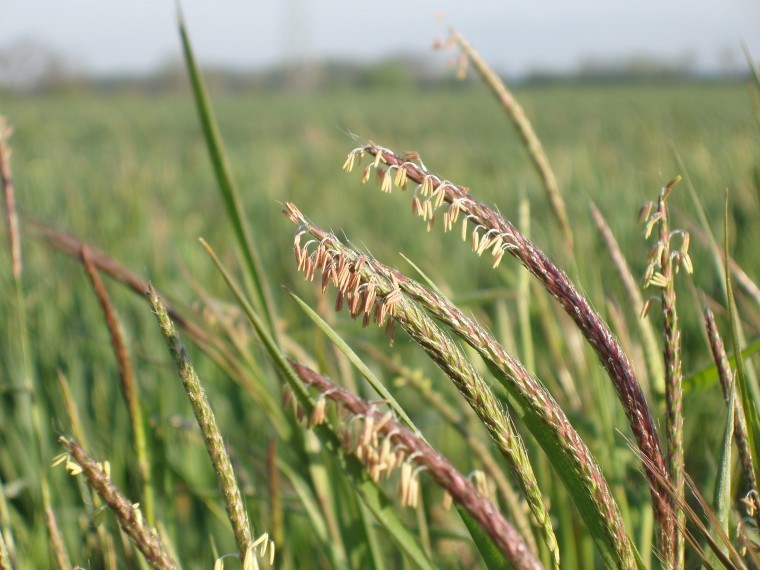Using a novel combination of field monitoring, glasshouse experiments and classical genetics, a team of researchers led by Rothamsted Research have developed a way to predict risks of resistance before it occurs in the field, and have applied this to the use of glyphosate in blackgrass.
Dr David Comont, the weed ecologist who led the study, said the work provides an early-warning to the UK farming industry that over-reliance on glyphosate is likely to lead to resistance.
“We found evidence that a number of blackgrass populations are responding to glyphosate use, by evolving reduced sensitivity to this herbicide in the field. Crucially, our results show this happening before high levels of resistance have evolved, whilst there is still time to delay or prevent this resistance.”
Glyphosate is one of the few herbicides that blackgrass isn’t already resistant to and is critical to the control of this weed. Another recent study has shown that it’s use by UK farmers has risen eight-fold in the last 30 years.
According to Dr Paul Neve, head of the Weed Ecology and Evolution research group at Rothamsted, it is this increase in use that is driving the evolution of resistance.
“We found that blackgrass populations with greater historic exposure to glyphosate are now the populations least sensitive to this chemical.
“If glyphosate use continues escalating, it may only be a matter of time before resistance evolves. Glyphosate should be used judiciously in strategies that combine herbicide use with other cultural management practices that reduce selection for resistance.”
The results, published in the journal New Phytologist, demonstrate a completely new approach to monitoring resistance – identifying signs of resistance evolution before it becomes a problem in the field.
Working with collaborators at the University of Sheffield, the Rothamsted team collected blackgrass seed from 132 farmer’s fields across 11 English counties – from Hertfordshire in the south to Yorkshire in the north, as well as collecting extensive data sets on historical field management, including glyphosate use.
More than 16,000 seedlings were grown from these seeds in glasshouses, and the effectiveness of glyphosate in controlling plants from each local population was assessed.
Plants from nine of these populations were then cross bred to produce 400 new seed lines with known genetic pedigrees, that were also tested for their responses to glyphosate.
Crucially, the team showed that the degree of sensitivity was something plants inherited from their parents, and that the variation in sensitivity between populations was a result of historical glyphosate exposure – both prerequisites for pesticide resistance evolution.
Breeding from plants that survived glyphosate application resulted in offspring with even less herbicide sensitivity than their parents – clearly demonstrating that every generation is heading closer towards resistance than the last. Taken together these results confirm that blackgrass populations can evolve reduced sensitivity to glyphosate on repeated exposure in farmers’ fields.
Dr Neve (Wednesday) and Dr Comont (Thursday) will be manning the Rothamsted Research stand (no 435) at Cereals 19 in Lincolnshire this week, where they will be demonstrating how a diversity of weed control methods is key to stopping resistance emerging.
Later this year Rothamsted will also play host to the conference Resistance 19, the 8th International Meeting on Pesticide Resistance which will cover the very latest work on resistance to insecticides, fungicides and herbicides.
The programme will include talks, posters and presentations under three headings “Molecular Mechanisms and Genomics”, “Evolution and Selection” and “Monitoring, Field Studies and IPM”, and it will bring together a wide range of academics, students, industry and stakeholder representatives to engage with the insights and strategies arising from the most up-to-date research.




